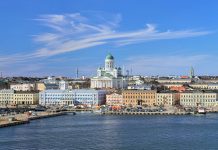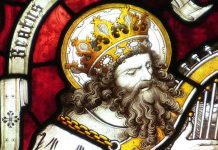Loving Father of heartbroken nation
The Pattaya Mail Media Group joins the entire Kingdom in sorrowfully extending our heartfelt grief in the passing of His Majesty King Bhumibol Adulyadej who passed away in peace on October 13, 2016. We wish to join all people of the world in our most sincere condolences to the entire Royal Family for their tragic loss.
His Majesty has been our inspiration of love and hope for the past 70 years, and we wish him a most peaceful journey into the next realm.
With his passing, the Thai Nation mourns, in a thousand different ways, with every person from the youngest to the oldest renewing their pledge of loyalty and devotion to the beloved King, and to the entire Royal Family.
The following pages contain part 1 of sometimes repeated, oft quoted excerpts of the incredible life of our most gracious Father of the Thai Kingdom, written by our special correspondent Peter Cummins.
Prologue
It is very difficult to encapsulate the incredible achievements of our beloved King in this short article. The writer, rather, has highlighted just some of the events, honours and accolades which have been dedicated to His Majesty, over the long years of his reign.
HM King Bhumibol Adulyadej was born on Monday, the fifth of December 1927, at the Mount Auburn Hospital, Cambridge, Massachusetts.
In his Coronation Oath, promulgated on the fifth of May 1950, the newly-crowned Rama the Ninth vowed that, “We will reign with righteousness for the benefit and happiness of the Siamese people,” and, in the seven decades which have passed since that auspicious day, the concept of “righteousness” dominated his reign. In fact, HM the King constantly revered the age-old Buddhist concept of ‘Kingship’ as defined in the Sutta Pitaka of the Tripitaka in which a King is defined as Mahasammata – a King of Righteousness.
Our King steadfastly reigned by these principles, embodying good kingship in his own life and example and often speaking out against the affliction of the evils so clearly spelled out in the Buddhist philosophy.
There will inevitably be some familiar material in parts of this story, for HM the King’s development projects have been ongoing for over half a century and there is, of course, a historical perspective which has been incorporated.
Musical Tributes
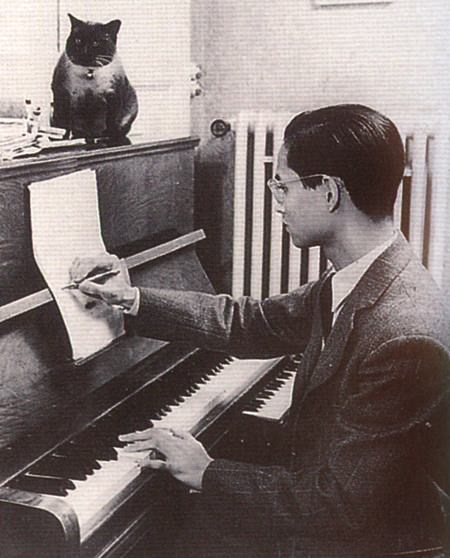
There have been so many tributes to our King from all corners of the world, that here it is only possible to outline some of them.
One of the most pervasive has been in the form of Musical Tributes, not surprisingly, as His Majesty is an acknowledged composer of classical music and an exceptionally-talented jazz aficionado.
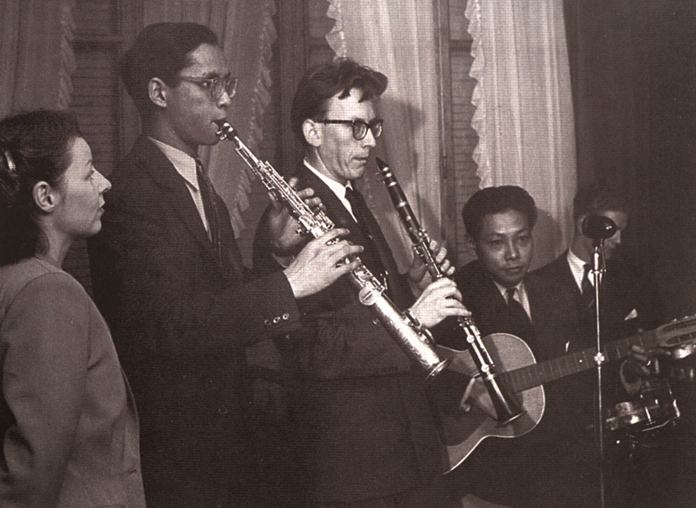
An Austrian ensemble who, despite never having worked together, recently succeeded in producing an album – the Royal Lullaby – that is faithful to the integrity and authenticity of the original pieces, and in the process created a musical repertoire of international caliber.
“It all started [when] we all met for the first time. I played for Her Majesty the Queen and was asked to include His Majesty’s Love In Spring in the programme. I didn’t know the music or what to expect so was very curious and I came here and just fell in love with the music,” said Austrian solo violinist Wolfgang David, one of the musicians who performed for the album.
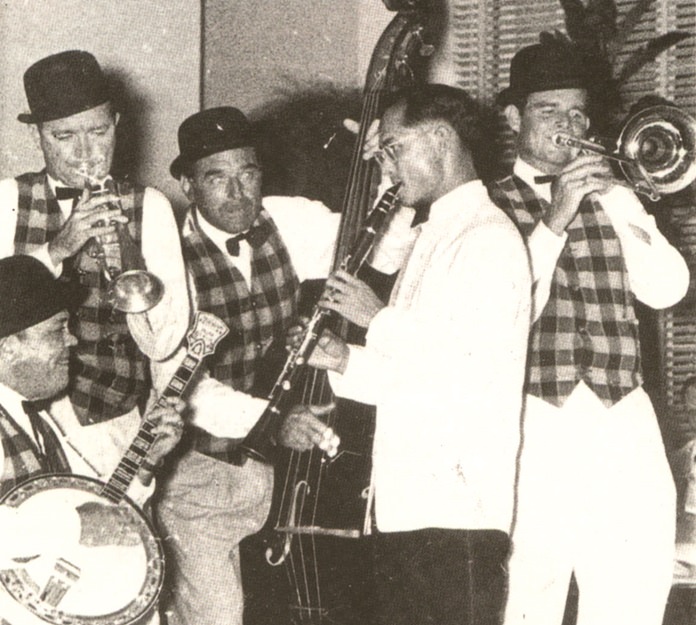
David and the album’s producer Chris Craker visited Bangkok to discuss the assembled work. David also performed a few pieces from the album at the launch held at the Sukhothai Hotel.
The Royal Lullaby album also showcases the talents of the Royal Philharmonic Orchestra, Swiss Conductor Emmanuel Siffert and local pianist Indhuon Srikaranonda. Revered Thai National Artist Prof Manrat Srikaranonda was also involved in the musical production.
Commissioned by Her Royal Highness Princess Galyani Vadhana, the album highlights 10 compositions that reveal HM the King’s musical ingenuity, including the well-known Lullaby and Summertime.
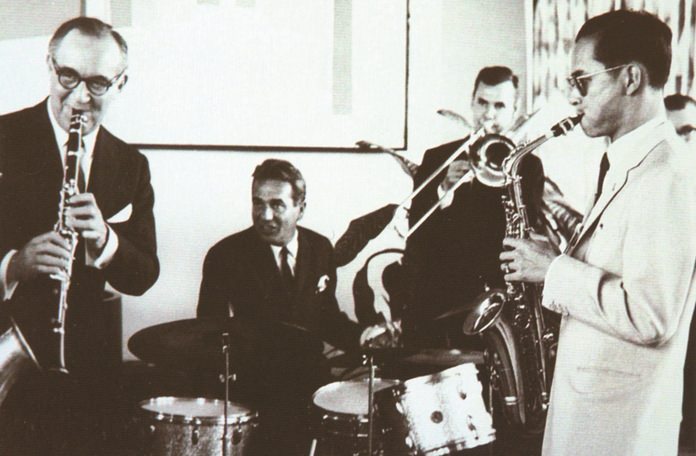
“These works are very important, because I believe Thai musicians have gleaned a lot of influence from Western music, but I think that American and European listeners will appreciate this type of music too,” said David explaining the necessity of creating an album of this stature.
On HM the King’s compositions, David said, “The music is uplifting, which makes it very human. That’s why I love to play it because I also believe that music should lift people’s minds – it’s not just about having a good time for an hour in a concert.”
Craker acknowledged that while His Majesty the King was already a respected figure in the international community, these newly-arranged pieces further enabled Western audiences to enjoy the music.
Craker also noted that the album’s juxtaposition of classical and jazz compositions was quite unusual. “There are elements of Thai folk music in the melodies, but I think His Majesty was greatly knowledgeable on Western music and was able to embody all those styles and influences with his own concepts,” he added.
“It’s different in that most of the pieces were already written, but the arrangements were not. The melodies have been around for many years, but this orchestration of them is new. There are no right or wrong arrangements, only how people will feel towards the music.”
As an interpreter of the melodies, Chris Craker understood the responsibility that he had in communicating HM the King’s music to an international audience.
Another tribute to HM the King’s musical talents came from the Nagoya Philharmonic Orchestra which, during the annual Toyota Classics concert featured the internationally-acclaimed Nagoya Philharmonic Orchestra, under the baton of Tatsuya Shimono, showcasing two of HM’s musical masterpieces in its programme; namely Kwam Fun Un Soong Sood (A Dream Most Noble) and Paendin Kong Rau (Our Land).
HM the King was also well-known as a songwriter who had more than 40 published songs to his credit. Kwarm Fun Un Soong Sood, a symphonically-conceived piece, was written in 1971 and has since become one of HM’s most popular and loved compositions.
Yet another musical evening was held by the Bangkok Symphony Orchestra to celebrate His Majesty’s 69th birthday in 1996. The Orchestra performed a special concert under the baton of Hikotaro Yazaki, featuring soloist Pornphan Banternghansa on the piano, at the Thailand Cultural Centre.The programme comprised Fanfare and Rhapsody for a Royal Celebration, a specially-composed piece for the celebration by UK composer Simon Wallace, which was followed by Rhapsody on a Theme of Paganini, Opus 43 for Solo Piano, by Rachmaninoff, and concluded with Symphony No. 4 by Brahms.
An evening of HM the King’s music was led by Sasin Alumni Associations in a concert entitled “The Royal Composition of His Life Journey: The King and His Music” to celebrate the 60th anniversary of His Majesty the King’s accession to the throne.
During the presentation, the Bangkok Symphony Orchestra performed His Majesty’s compositions as arranged in an orchestral style by Rear Admiral ML Usni Pramoj, who was also the conductor.
HM the King – the World’s Longest Reigning Monarch
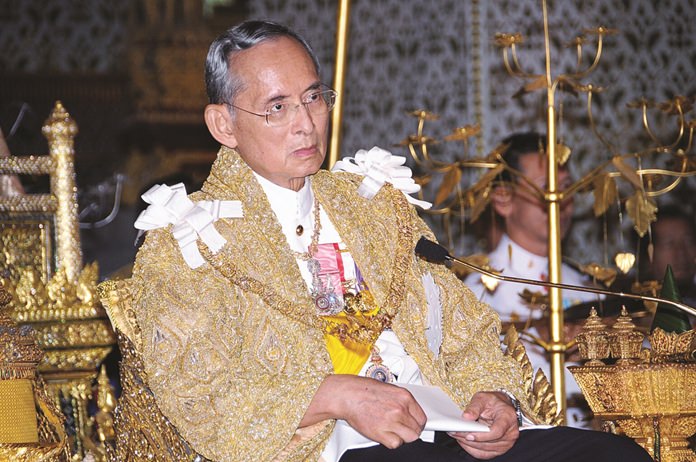
It was ten years ago, in 2006, on the occasion of the 60th anniversary of his accession to the Thai Throne, Their Majesties the King and Queen presided over splendid festivities as representatives of 25 royal houses from Europe, Africa, the Middle East and Asia had come to Bangkok to honour His Majesty King Bhumibol Adulyadej .
The royal guests came from near and far to enjoy Thai hospitality and the friendship of the Thai Royal Family.
But – and, perhaps, more significantly – to honour this celebration, millions of people packed the areas around Bangkok’s Royal Plaza to hear HM the King deliver a rare public address in which he called for national unity.
“The responsibility to preserve the nation,” His Majesty reminded his subjects, “does not belong to any particular person but to all Thais who must do their utmost to develop the country and make it prosperous, stable and peaceful,” he said. “Therefore, I, as a Thai, have the same responsibility as all Thais do.”
In November, 2006, Time Magazine honoured the King an ‘Asian Hero’ among 65 prominent figures so designated.
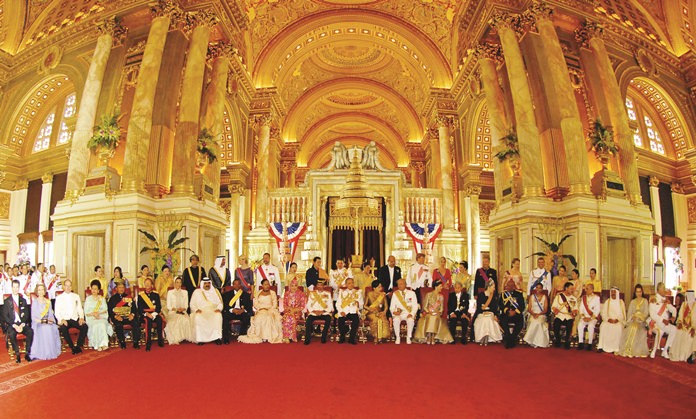
“The King’s stewardship has been so masterful that in times of crisis, Thais invariably turn to one man: King Bhumibol,” writes the article published in the magazine’s Nov 13, 2006 issue. “On two occasions – October 1973 and May 1992”, Time editorialized – “with Thailand descending into chaos, the King, armed only with his moral authority, intervened to end bloodshed.”
Elsewhere, His Majesty had been named the first recipient of the Norman E Borlaug World Food Prize Medallion in recognition of His Majesty’s outstanding humanitarian service in alleviating starvation and poverty, presented by the World Food Prize Foundation on July 23, 2007.
The medallion is named in honour of the World Food Prize founder and Nobel Peace Prize Laureate Dr Norman Borlaug.
“Since his accession to the throne in 1946, King Bhumibol Adulyadej … displayed a deep concern that the Thai people have sufficient food and proper nutrition,” said Ambassador Kenneth M Quinn, president of the World Food Prize Foundation.
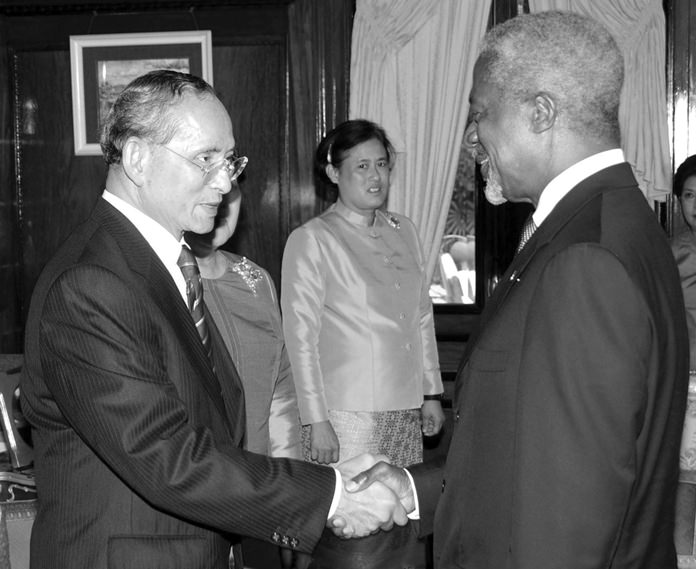
The royal projects have benefited millions of people across Thailand, with a particular focus on aiding ethnic groups and hill tribes in mountainous regions.
“Dr Borlaug tells of his visits to Thailand and the time he spent meeting with His Majesty and walking through the countryside with him as they discussed possible new approaches to agriculture,” said Mr Quinn.
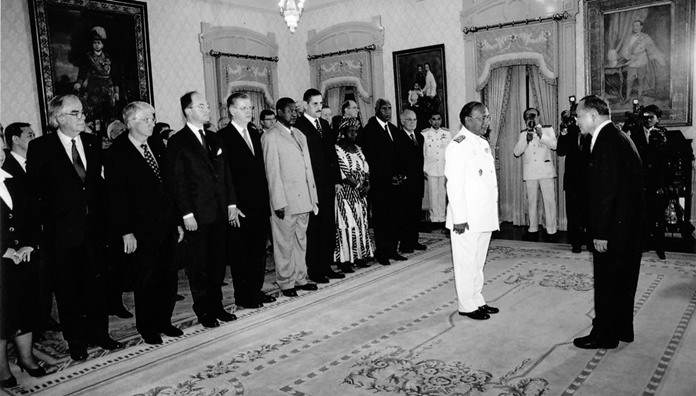
The King was also lauded by Kofi Anan, then Secretary-General of the United Nations, as the “Development King”, acknowledging his dedication to promote child health, combat iodine deficiency and increase access to education.
At the same time, the United Nations Development Programme presented His Majesty the UNDP Human Development Lifetime Achievement Award “in recognition of the global relevance of his call for a sufficiency approach to development” (May, 2006).
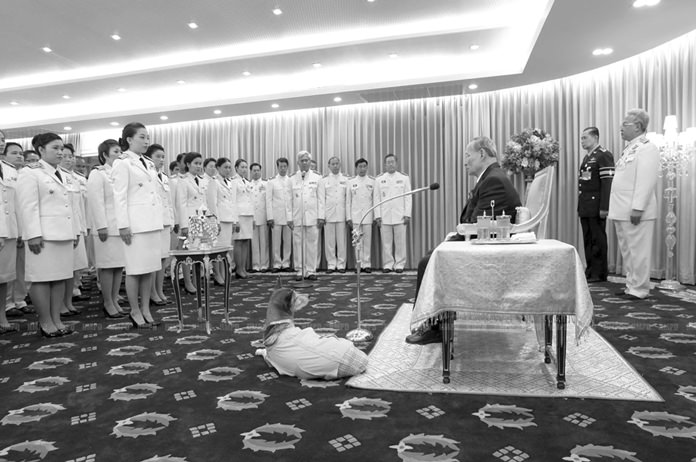
More recently, the Budapest-based International Federation of Inventors’ Association (IFIA) presented the IFIA Cup 2007 for His Majesty’s Chai Pattana wheel used to treat water. The IFIA also presented its Genius Medal prize to honour His Majesty’s Self-Sufficiency Philosophy, and his New Theory, which revives farming techniques, based on Thai wisdom focusing on minimal use of resources but aiming for higher agricultural productivity.
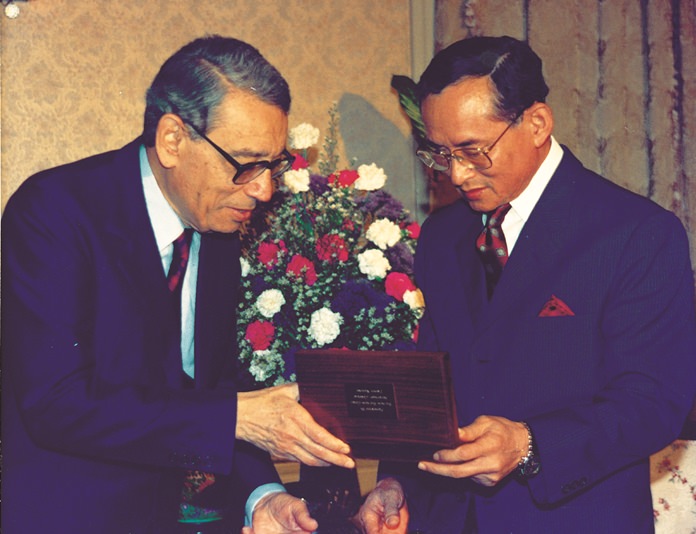
To be continued…


